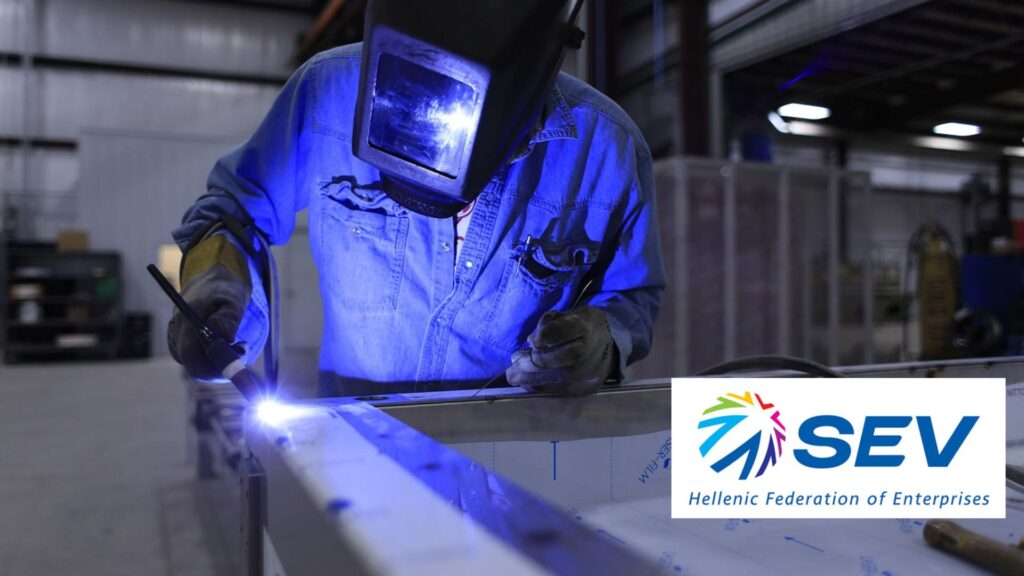
Energy prices and AI transformations are some of the key challenges the Greek manufacturing industry is facing, according to the “Pulse of Entrepreneurship” survey, implemented by EY in collaboration with SEV (Hellenic Federation of Enterprises).
POSITIVE FACTORS
According to Thanos Mavros, Partner, EY Consulting Services Greece – Head of Supply Chain and Intercompany Operations EY Greece and EY Central, Eastern, Southeastern Europe and Central Asia (CESA), the survey revealed the positive factors affecting the market’s future, such as:
- The business opportunities in the European value chains
- The dynamic domestic innovation ecosystem
- The progress of investments in energy autonomy
- The high growth rate of the Greek economy
Some of the problems and challenges the Greek manufacturing sector is facing are:
- The high energy costs
The tight environmental targets imposed by the stringent environmental protection targets
- The enormous AI disruption
- The difficulty of finding talent
In detail, the survey revealed the following findings:
- 46% believe that reshoring is an opportunity for growth, but only 28% of respondents believe it will positively impact business
- The major challenges in the external environment are energy costs (72%), supply chain disruptions (63%) and raw material costs (61%)
- Research and development tops the list of challenges in the internal environment (39%)
- 81% of companies have implemented excellence actions, 89% consider these actions successful but only 24% have a structured programme and strategy
- 73% of companies see recruitment as the most important challenge they will face in the next three years
THE FUTURE OF THE MANUFACTURING SECTOR
Painting the big picture in regard to the sector’s future course, the Director of the Industry, Development, Technology & Innovation Sector of SEV, Maggie Athanasiadis, mentioned:
- The contribution of broader industry to GDP reached 14.4% in 2022, up from 13.2% in 2010
- The contribution of the manufacturing sector in particular to GDP rose to 10.3% in 2022, from 8.9% in 2010
- 117,000 new jobs were created, showing a 31% increase in employment since 2014
- The average wage in manufacturing increased by 32%
- Investment of €38 bn since 2010, with €22 bn in machinery and technological equipment
- Full-time researchers now number 3,500, up from 1,900 in 2011
- Research and development spending has increased by around 100% over the last ten years
- Industry’s share of exports has risen to 24% compared to 8% in 2010
Author: admin

 Add to favoritesNo tags for this post.
Add to favoritesNo tags for this post.